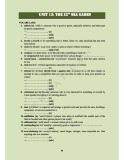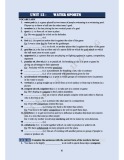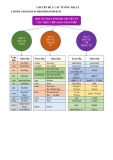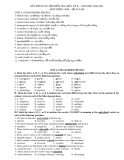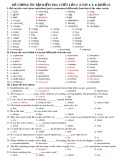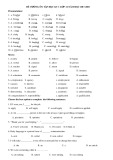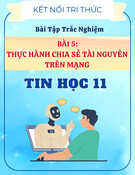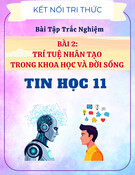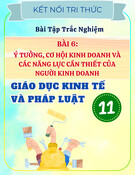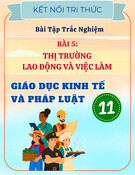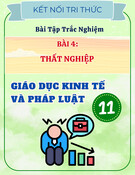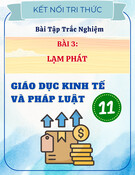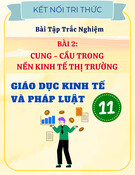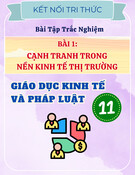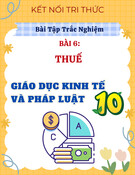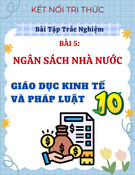
ÔN KI M TRA 1 TI T L N 1- L P 12Ể Ế Ầ Ớ
CH NG TRÌNH C B NƯƠ Ơ Ả
Compiled by Mrs Trang Anh
Facebook: Mrstranganh87
REVIEW UNIT 1, 2, 3
I. pronunciation
1. A. helps B. laughs C. cooks D. finds
2. A. neighbors B. friends C. relatives
D. photographs
3. A. streets B. phones C. books D. makes
4. A. develops B. takes C. laughs D. volumes
5. A. phones B. streets C. books D. makes
6. A. walks
B. steps
C. shuts D. plays
7. A. wishes
B. practices
C. introduces D. leaves
8. A. grasses
B. stretches
C. comprises D. potatoes
9. A. invited B. attended C. celebrated D. displayed
10. A. removed B. washed C. hoped D. missed
11. A. looked B. laughed C. moved D. stepped
12. A. wanted B. parked C. stopped D. watched
13. A. laughed B. passed C. suggested D. placed
14. A. believed B. prepared C. involved D. liked
15. A. lifted B. lasted C. happened D. decided
16. A. collected B. changed C. formed D. viewed
II. stress
1. A. attract B. person C. signal D. instance
2. A. verbal B. suppose C. even D. either
3. A. example B. consider C. several D. attention
4. A. situation B. appropriate C. informality
D. entertainment
5. A. across B. simply C. common D. brother
6. A. maintain B. attitude C. determine D. develop
7. A. brilliant B. different C. secretary D. attractive
8. A. hospital B. mischievous C. supportive D. special
9. A. family B. whenever C. obedient D. solution
10. A. biologist B. generally C. responsible D. security
11. A. confident B. important C. together D. exciting
12. A. possible. B. university C. secondary D. suitable
13. A. sooner B. caller C. behalf D. caring
14. A. verbal B. signal C. instance D. agree
15. A. attract B. away C. waving D. attend
16. A. verbal B. pollute C. choices D. table
III. vocabulary
1. Each of us must take ______ for our own actions.
1

A. probability B. ability C. possibility
D. responsibility
2. These quick and easy _______ can be effective in the short term, but they have a cost.
A. solve B. solvable C. solutions D. solvability
3. John is _______ only child in his family so his parents love him a lot.
A. a B. an C. the D. no article
4. According to the boss, John is the most _______ for the position of executive secretary.
A. supportive B. caring C. suitable D. comfortable
5. She got up late and rushed to the bus stop.
A. came into B. went leisurely C. went quickly D. dropped by
6. Billy, come and give me a hand with cooking.
A. help C. be busy D. attempt
B. prepared
7. Whenever problems come up, we discuss them frankly and find solutions quickly.
A. happen B. encounter C. arrive D. clean
8.
What are the _______ of that country? - I think it is some kinds of cheese and sauces.
A. drinks B. beverages C. grains D. special dishes
9. Peter tried his best and passed the driving test at the first _______.
A. try B. attempt C. doing D. aim
10. Where is Jimmy? - He is ____ work. He is busy ____ his monthly report.
A. on / for B. in / about C. to / through D. at / with
11. With greatly increased workloads, everyone is _______ pressure now.
A. under B. above C. upon D. out of
12. We are not allowed _______ jeans at school.
A. wear B. to wear C. wearing D. worn
13. I didn't think his comments were very appropriate at the time.
A. correct B. right C. suitable D. exact
14. There are many ways _________ someone’s attention.
A. to attract B. to sell C. to lend D. to buy
15. We can use _________ and _________ forms of communication to attract one’s attention.
A. silence / noise B. verbal / non-verbal C. verb / adverb D. gentle / impolite
16. Probably the most common ways of attracting someone’s attention is by _________.
A. dancing B. singing C. yelling D. waving
17. When you see your brother _________ the plane, you may _________ to call his name.
A. look at / throw a stone to him B. pass by / whistle and clap your hands
C. get off / claps your hands D. get off / jump up and down
18. There are some social _________ where smaller, non-verbal signals are more appropriate.
A. situations B. signatures C. attractions D. documents
19. When you approve someone’s opinion, you can stare at him or her and _________ slightly.
A. kneel B. nod C. shake you head D. sigh
20. In a restaurant, we can raise our hand to show the waiter that we need his _________.
A. fame B. sponsor C. assistance D. donation
21. You shouldn’t _________ or clap your hands to get the person’s attention in a restaurant.
A. whistle B. smile C. nod slightly D. keep silent
22. Whistling and _________ in a restaurant is considered to be impolite and even rude.
A. talking B. clapping hands C. smiling D. sighing
23. You shouldn’t _________ the person or thing you want your friend to look at.
A. take notice of B. mention to C. look at D. point at
24. In most situations, pointing at someone is usually considered to be_________.
A. polite B. impolite C. gentle D. dish
25. Your opinion is reasonable, so it is _________.
A. acceptable B. suffered C. denied D. refused
26. In some special social situations, pointing at someone is completely_________.
A. lovely B. acceptable C. gentle D. formal 27. _________, a teacher may point to
student so as to get his or her attention.
A. Forgive B. Forever C. For instance D. For the sack of
28. In some social situations, _________ is allowed to friends.
A. fighting seriously B. rudeness C. accurate D. informality
29. To attract the waiter’s attention, wait until you _________ and raise you hand slightly.

A. catch his eye B. can attract him
2

C. pay attention to him D. take advantage of him
30.
Raising hand and waving are of the _________ form of communication.
A. uncountable B. countable C. non-verbal D. verbal
31.
Mary looks very attractive in her _________ clothes.
A. terrible B. old fashioned C. fashionable
D. out-dated
32. Phil: You really have a beautiful dress, Maggie!
Maggie: Thanks Phil. That’s a nice _________.
A. complexion B. comfortable C. compliment D. completion
33. Peter: Your hairstyle is really _________, Mary!
Mary: I’m glad you like it, Peter. Thanks so much.
A. terrific B. terrible C. horrified D. terrorist
34. Your dress is really beautiful, Cindy! You look very _________ in it.
A. awesome B. ugly C. naughty D. decent
35. Nam: You really have a beautiful hairstyle now, H ng!ư
H ng: _________! You’ve pushed me into the blush.ư
A. It isn’t your work B. You must be kidding C. Yes, of course D. Nice to meet you
36. I think I’ve finally found a style that looks decent and easy _________.
A. fighting B. to fight C. to handle D. handling
37. A survey was conducted to determine students’ _________ toward their purposes of studying.
A. counterparts B. appearances C. marriages D. attitudes
38. A large amount of Indian men agree that it’s unwise_________ in their wives.
A. to confide B. to interest C. confiding D. interesting
39. Many Indian students agree that a woman has to _________ more in a marriage than a man.
A. suicide B. sacrifice C. die D. be dead
40. The American wife trusts her husband to do the right things because he _________ her.
A. dislikes B. detests C. loves D. hates
41. Many Americans pay much attention to physical _________ when choosing a wife or a husband.
A. attraction B. spirits C. interests D. attractiveness
42. Romeo and Juliet decided to _________ although their parents had hated each other.
A. fall into the river B. fall in love C. climbed up the tree D. take a bath
43. _________, a husband should share certain thoughts to his wife only.
A. In my opinion B. To all people C. My hobbies D. Agreement
44. In America, it is _________ to ask questions about age, marriage and income.
A. polite B. impolite C. enthusiastic D. excited
45. In Vietnam, _________ that all old-aged parents live in nursing home.
A. it’s true B. it’s untrue C. that’s right D. it’s quite exactly
46. Christmas and New Year holidays are the _________ occasions to most Americans.
A. sadder B. unhappy C. more importance D. most important
47. In Vietnam, two or more _________ may live in a home.
A. generations B. generous C. generation D. generators
48. I take responsibility to _______my little brothers because they are sometimes very naughty.
A. look after B. get up C. sit down D. shut up
49. My responsibility is to wash dishes and _______the garbage.
A. take off B. take out C. take care of D. take over
50. My mother works _______a nurse in a big hospital. She examines the patients.
A. for B. as C. in D. at
IV grammar
1. He has lived here since he ________ here.
A. came B. has came C. comes D. come
2.
John________ as a journalist since he ________ from university in 2000.
A. is working / graduate B. worked / graduated
C. had worked / will be graduate D. has been working / graduated
3. He does not save as much money as he________ last year.
A. did B. does C. uses D. did used
4. She has not written to me________ we met last time.
A. before B. since C. ago D. meanwhile
3

5. The police ________ for the thieves at the moment.
A. have been looking B. will be looking C. are looking D. is looking
6. Put the raincoat on. It________.
A. had rained B. will be raining C. is raining D. has rained
7. Since motion pictures________ we have had a new kind of entertainment.
A. were invented B. have been invented C. will have been invented D. had been invented
8. There________ a lot of furniture in our uncle's house now.
A. is being B. were C. are D. is
9. Mr. Jones sometimes________ on time for work.
A. does not get up B. won't get up C. had not got up D. is not going to get up
10. He ________ for twenty years before he retired last year
A. had been teaching B. has taught C. was teaching D. has been teaching
11. By the time the ambulance approached, the man________.
A. would die B. had died C. died D. dies
12. We________ for going home when it began to rain
A. has prepared B. are preparing C. will be preparing D. were preparing
13. I haven’t seen him for months.
A. It’s months since I last saw him B. It’s months when I last saw him
C. It’s months before I last saw him D. It’s months after I last saw him
14.
Tim________ his hair while I ________ up the kitchen
A. washed-was cleaned B. was washing-was cleaning C. was washing-cleaned
D. washed-cleaned
15.
Working for 12 hours a day ________ her very tired.
A. makes B. made C. make D. making
16. I am so happy to hear from Mary because I haven’t seen her ________ last year.
A. for B. on C. since D. later
17. After he ________ English course, he went to England to continue his study.
A. will finish B. has finished C. had finished D. have been finished
18. I wish I ________ a trip to London last year. A. had taken B. took C. will take D. take
19. He started living here three years ago.
A. He lived here three years ago. B. He has lived here for three years.
C. He had been living here for three years. D. He had lived here three years ago.
20. Who ________ when I came?
A. were you talking to B. are you talking to C. you are talking to
D. you were talking to
21. Water _________ of hydrogen and oxygen.
A. consists B. consist C. is consisting D. has consisted
22. Don’t give the chocolate to Helen. She ____ it very much.
A. hated B. hates C. is hating D. has hated
23. The Sun _________ us heat and light.
A. gives B. gave C. have given D. will give
24. Tom _________ that he was having a party there in the evening.
A. asks B. said C. says D. told
25. Claire told me that her father _________ a racehorse.
A. owns B. owned C. owning D. has owned
26. Bill was slow, so I _________ hurry.
A. tell him B. told him for C. told to D. told him to
27. I told you _________ switch off the computer, didn’t I?
A. don’t B. not C. not to D. to not
28. Sarah was driving too fast, so I _________ to slow down.
A. asked her B. asked C. ask D. have asked her
29. Someone _________ me that there’d been an accident on the motorway.
A. asked B. said C. spoke D. told
30. Sue was very pessimistic about the situation. I advised her _________.
A. no worry B. not worry C. no to worry D. not to worry

